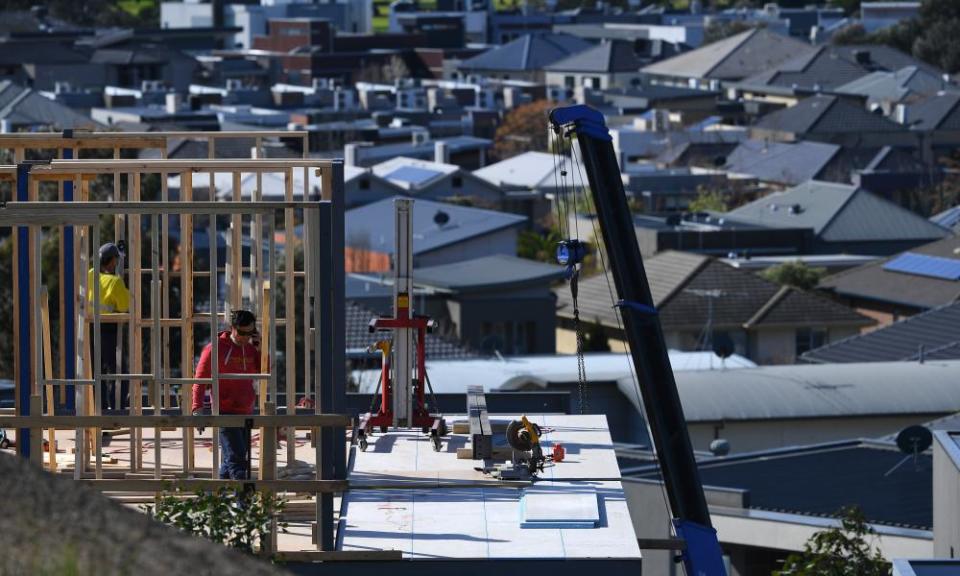Australian housing market to experience 'up crash' on back of homebuilder mini-boom – investment bank

Australia’s housing market is set for an “up crash” as the government’s homebuilder subsidy scheme prompts a spike in construction that will rapidly fall away, investment bank UBS says.
George Tharenou, the chief economist at UBS in Australia, said due to the homebuilder spending spree he had increased his estimate of the number of houses that would be built in 2021 from 185,000 to 230,000 – well above the 175,000 level predicted by other economists.
House prices are likely to rise by 5-10%, but there was now a chance they would soar more than 10%, “particularly given the planned repeal of responsible lending” rules, Tharenou said in a note to clients.
Related: The gap between Australian house prices and incomes is only likely to grow | Greg Jericho
The federal treasurer, Josh Frydenberg, has billed the planned repeal of the laws, which require banks to check whether customers can afford to repay loans, as a way to kickstart economic growth, but consumer groups worry it will lead people to borrow too much money.
As a result of the housing spike, Tharenou said he now thought economic growth this year would also be slightly stronger at 4.3% compared to his previous estimate of 4.2%.
However, Tharenou expects new home starts will begin to fall away after the homebuilder program ends in the second half of the year, tumbling to 160,000 in 2022. He has cut his estimate of economic growth for 2022 to a “still strong” 4%.
After a slow start, applications for payments of $25,000 available under the homebuilder scheme rocketed in the last weeks of 2020, tripling the size of the total program to more than $2bn.
Tharenou said he expected a further flood of applications for payments of $15,000 that are available until the end of March.
“Given commencement must occur within six months of contract signing, this will lead to a surge in (mainly detached) construction,” he said.
Related: Australian house prices could drop in early 2021 despite 3% rise over past year, analysts say
He said stronger growth increased the chance that the Reserve Bank of Australia would not extend a program of quantitative easing, or buying government bonds from banks, that it announced in November to support the economy.
This was especially true “if the surge in activity is accompanied by a sharper decline in unemployment”.
“That said, the impact of this housing boom on inflation is complicated,” he said. “Furthermore, as first home buyers move out of rentals into new/completed homes over the next year or so, there is potential oversupply that will cause further declines in rents, unless migration rebounds strongly,” he said.

 Yahoo Finance
Yahoo Finance 